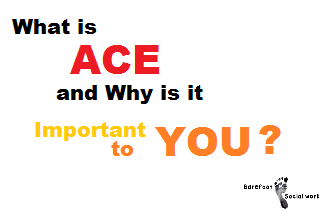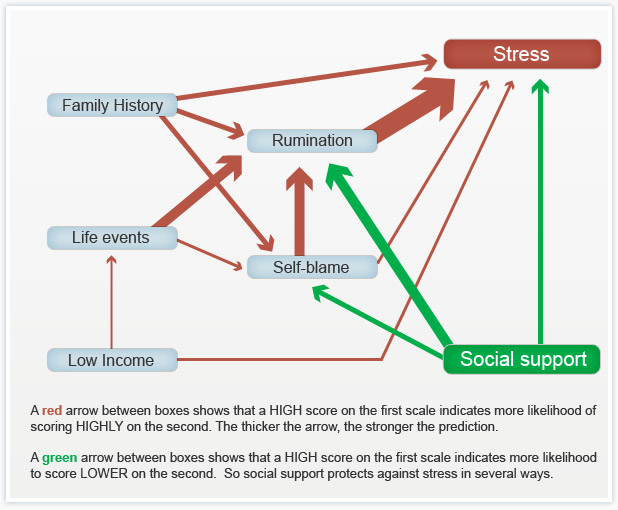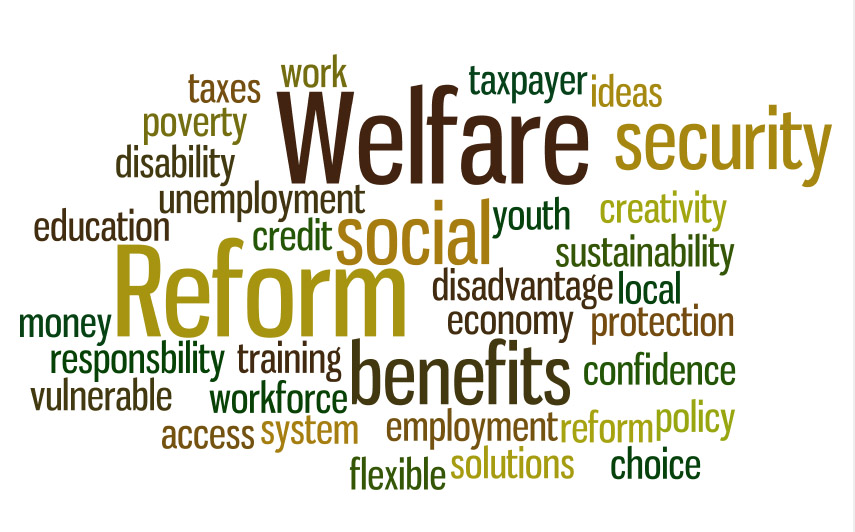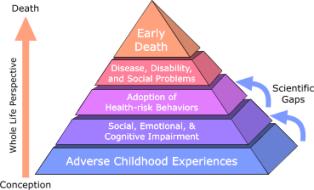|
Whitney was right in 1985 when she sang “the children are our future” but does the government believe this only applies if you’re from a certain background? I recently read an article by Dr. Charles Lewis where he asks if the US is witnessing a new wave of social Darwinism. Perhaps the UK should also reflect upon this question. What kind of future will the most vulnerable children in our society have unless we invest in them and their families both financially and emotionally?
The shock result in the UK general election was a wakeup call and we need to re-examine how social issues are discussed within the media if they are to be seen as relevant to the electorate. Labour are reportedly “soul searching” whilst the Liberal Democrats have launched a “fightback” but we should all be engaged in the debate. Many people believe that the core tenet of democratic voting is that we should vote for those that best represent our personal interests; however, we should all have a vested interest in the welfare of those living in poverty and with adversity, and we know that the socially excluded are less likely to vote and have their interests represented.
In my post on the 11 May 2015 I described how poverty is considered to be the best predictor of mental health disorders because it is a predictor of all the other things that are causal. I explained how adverse childhood experiences (ACE), many of which are compounded by poverty, are strongly related to adverse behavioural, health and social outcomes; creating a cyclic effect where those with higher ACE counts have higher risks of exposing their own children to ACEs.
These childhood experiences place a huge burden on the NHS, social care and judicial system. Surely it is plain to see that investing in services earlier will not only improve the life chances of the most vulnerable children in our society, but it will also alleviate some of the pressure on other services. The government needs to invest in an infrastructure that can be preventative as well as reactive. We would all benefit from it. If we are concerned about crime, we might want to look at the causes of crime. Childhood adversity is associated with adult criminality and it has been recommended in a 2013 study that to decrease criminal recidivism, treatment interventions must focus on the effects of early life experiences. Indeed, a UK ACE study found that preventing ACEs in future generations could reduce levels of violence victimisation by 51%, violence perpetration by 52% and incarceration by 53%. If we are concerned about the NHS, we might want to look at the causes of the negative health outcomes that place a burden on its service. Previous studies have found that there is a dose-response relationship between adverse childhood experiences and health outcomes. For a person with an ACE score of four or more, the relative risk of chronic obstructive pulmonary disease was around two and a half times that of someone with an ACE score of zero. For hepatitis, it was also two and a half time times. A person with an ACE score of seven or more had triple the lifetime risk of lung cancer and three and a half times the risk of ischemic heart disease. In 2014 a Bulletin of the World Health Organization described how people in the UK with at least four adverse childhood experiences were at significantly increased risk of many health-harming behaviours. They said modelling indicated that prevention of adverse childhood experiences would substantially reduce the occurrence of many health-harming behaviours. But that's not all... they also found that preventing ACEs in future generations could reduce levels of early sex (under 16 years) by 33%, unintended teen pregnancy by 38%, smoking by 16%, cannabis use by 33%, heroin/crack use by 59% and poor diet by 14%. Until we see political and social reform Social Workers can help the vulnerable groups they support by working in preventative ways, rather than concentrating solely on crisis intervention; act as advocates for people that encounter injustices; empower people to become involved in decisions that affect them; challenge oppressive working practices; and most importantly, advocate for political and social change. It is important for social workers to engage in the current debate about how to prevent harmful childhood adversity and challenge structural inequalities that compound them. If you would like to learn more, I've added some recommended books at the end of this post. You should also take a look at this video of Mark Bellis at the World Health Organisation:
0 Comments
For the last three weeks I've been posting about a course I've been taking called Psychology and Mental Health: Beyond Nature and Nurture. This week we focused on the role of psychological mechanisms in the development of mental health problems and the maintenance of well-being. The sources we were presented with suggest that a psychological perspective adds a vital additional element to the ‘nature-nurture’ debate, because it is through these psychological mechanisms that we interpret and respond to the world.  Our course leader Peter Kinderman, Professor of Clinical Psychology at the University of Liverpool, argues that our mental health is essentially a psychological issue, and that biological, social, and circumstantial factors affect our mental health and well-being by disrupting or disturbing psychological processes. The way in which we make sense of the world, the way in which we understand ourselves, who we are as people, the way we make sense of other people, the way that we react socially, how we think about the future, and how we think about the world in general, this sense making, this framework of understanding of the world is fundamentally important in determining our mental health and well-being. To get us started we are provided with a copy of Peter Kinderman’s, A Psychological Model of Mental Disorder. This article discusses the relationship between biological, social, and psychological factors in the causation and treatment of mental disorder. He suggests that a comprehensive psychological model of mental disorder can offer a coherent, theoretically powerful alternative to reductionist biological accounts while also incorporating the results of biological research. We are told that Peter was able to test out some of these ideas in a research study that he conducted with the help of the BBC; testing out the idea of whether a combination of different factors could predict the level of mental health difficulties and well-being that a person was experiencing. They were interested in whether biological factors, which were measured by looking at the experience of mental health problems in a person's family of origin, in their parents and in their siblings, could predict mental health problems, which would then have a variety of psychological and social consequences. Or whether, on the other hand, life events like trauma in early childhood or experiencing a range of negative life events in the last six months would predict people's mental health problems. Or as they hypothesised, whether psychological factors - rumination, where people would go over and over things in their minds, or self blame, where people would blame themselves for the difficulties they were experiencing - would explain more of a person's mental health problems. When they looked at the results, it seemed that social factors were very influential in predicting people's mental health problems, with biological factors playing a part, but a less important part. But importantly, both social and biological factors were mediated by the psychological factors. So, they asserted, rumination and self blame seem to be the gateways towards mental health problems.
You can see the paper itself and also a brief magazine article (Rumination: The danger of dwelling) hosted by the BBC on their website. Peter says that this way of thinking about mental health has some quite profound consequences. If you realise the way in which a person thinks about the world, the way in which a person responds to events in their lives, makes a difference to their mental health, to their well being, to anxiety and depression, it does change the way in which we should approach mental health problems. It brings it back to the idea that how we think about the world matters. Because it changes the way in which we feel and behave. This gives us some different opportunities for how to help people who've got emotional difficulties. But it's also important for people who themselves are suffering, because rather than blaming them for their difficulties, it means that there are things that they can do themselves to get out of the problems that they find themselves in. It gives people a sense of agency and control over their own mental health. Finally we were invited to take part in some of Peter’s current research: Causal and mediating factors in mental health and wellbeing. A follow up study to the research that has formed the basis of this week’s part of the course. At the end of the course we are asked if we believe adding psychological processes to the mix add anything useful to our understanding of the ‘nature-nurture’ debate? Do we think these kinds of factors are important in determining our mental health and well-being? Do we think an understanding of psychological processes mean that we can offer more useful ways of helping people - perhaps through therapy? What do you think? If rumination is posing a difficulty for you or a client there are a couple of things you could try.
I read in the Guardian today that Downing Street have announced Iain Duncan Smith will remain Work and Pensions Minister following the Conservatives electoral win last week. They reported that he will “continue with his task of “making work pay and reforming welfare” as the government implements the universal credit reforms and imposes £12bn in cuts on the welfare budget”. This will be in addition to the £30bn that the Institute of Fiscal Studies say the Tories will also need to find in real-terms cuts from ‘unprotected’ departments, including social care and defence. The news of a Tory win last Thursday didn’t go down well with some. There were large demonstrations in London over the weekend; although it was only the violent clashes with riot police outside Downing Street that seem to have made the headlines. However, the arrests don’t seem to have deterred them; and the anti-austerity group behind the protest are planning another demonstration outside the Bank of England next month. Like many, I am genuinely worried about the proposed cuts and what that means for social work. I posted last week that Peter Kinderman, Professor of Clinical Psychology & Head of the Institute of Psychology, Health & Society at the University of Liverpool, has said that one of the best predictors of mental health disorders by far, whether it’s depression, suicidality, psychosis, are all life events. The strongest predictor all by itself is poverty. Not because poverty by itself causes depression, but because it is a predictor of all the other things that are causal. So poverty has been described as the causes of the causes. And those other causes are a whole raft of things – childhood neglect, childhood abuse, loneliness, and problematic parenting, which is usually inter-generational. It’s not about bad parents, it’s about who themselves haven’t perhaps had the sort of childhood that predisposed them to good enough parenting. And so the cycle continues… There are currently 3.5 million children living in poverty in the UK. That’s almost a third of all children. 1.6 million of these children live in severe poverty. But what the Conservatives don’t want you to know is that 63% of children living in poverty are in a family where someone works. This is why welfare, preventative services, family support and intervention are so vital. We need to break the cycle by providing welfare that brings children out of poverty. Services need to be funded and available to support the most vulnerable and improve parenting so that children can be safeguarded in the care of their family. However, services that were once available have been decimated through cuts over the course of the last parliament and they look set to get worse by 2020. But welfare isn’t just about being a decent human being; it also makes economic sense. In the mid-'90s, the Centers for Disease Control and Prevention discovered an exposure that dramatically increased the risk for seven out of ten of the leading causes of death in the United States. In high doses, it affects brain development, the immune system, hormonal systems, and even our DNA. People that are exposed in very high doses have triple the lifetime risk of heart disease and lung cancer and a 20-year difference in life expectancy. It’s not about eating GM foods. It's childhood trauma: things like abuse or neglect, or growing up with a parent who struggles with mental illness or substance dependence; things that we know, according to Peter Kinderman, are strongly linked to poverty. Take a look at this 2014 TED talk by Nadine Burke Harris. The Adverse Childhood Experiences study found that there was a dose-response relationship between ACEs and health outcomes: the higher your ACE score, the worse your health outcomes. For a person with an ACE score of four or more, their relative risk of chronic obstructive pulmonary disease was two and a half times that of someone with an ACE score of zero. For hepatitis, it was also two and a half times. For depression, it was four and a half times. For suicidality, it was 12 times. A person with an ACE score of seven or more had triple the lifetime risk of lung cancer and three and a half times the risk of ischemic heart disease, the number one killer in the United States of America. Now, you might be thinking – this is interesting but it’s about a study conducted in the United States. Can we rely on the findings to support welfare as a public health initiative in the UK? Well…. In 2014 Mark Bellis and colleagues published a retrospective study to determine the impact of adverse childhood experiences on adult health behaviours and health outcomes in a UK population. They also found that increasing ACEs were strongly related to adverse behavioural, health and social outcomes. Compared to those with 0 ACEs those with 4+ ACEs had a greater risk of poor educational and employment outcomes; low mental wellbeing and life satisfaction; recent violence involvement; incarceration; recent inpatient hospital care and chronic health conditions; and early unplanned pregnancy. All of this suggests a cyclic effect where those with higher ACE counts have higher risks of exposing their own children to ACEs. There are more studies here, here, and here. It’s clear that these childhood experiences place a burden on a UK population’s health, NHS and judicial system; and there is a strong case for the government to invest in effective interventions to prevent them. That’s why the World Health Organization and global health partners are promoting research into the extent and impact of them around the world. So, why is it that during this time of growing evidential support for preventative work, is the government promoting a false economy through welfare cuts and dismantling the welfare system??? In 2007 Lynne Wrennall identified failures in the UK’s work with vulnerable children. She believes that the morale of a “great many caring, compassionate, highly competent, and creative social workers” would be “vastly improved if their primary function was again focused on assisting, rather than dismantling, families, upon working creatively toward this end with the resources and the legislative and managerial support to do so”. However, she also acknowledges that sometimes “an out-of-home placement is unavoidable”, and that in those instances “a programme leading towards re-unification and rehabilitation must be implemented”. She advocates for a “European model” that “strongly favours an educative role for social workers and a primary task of maintaining family unity, utilising and coordinating services toward this end and focusing on `educating’ the parents and family in social norms and values”. But for this to happen the conservative government would first need to reframe the way it thinks about the most vulnerable people in our society and invest in their future wellbeing and health. Local Authorities would need greater funding to hire more social workers so that caseloads are at a manageable level where they have the time to undertake intensive direct work with families again. They would need to fund preventative and outreach services that can directly tackle problems before children become at risk of significant harm. Instead, proposals have been tabled to jail social workers who fail to prevent neglect, despite the necessary infrastructure to properly address it; and the shock result of a Conservative majority victory signals deeper, faster cuts than ever before. Communitycare has urged Social Workers to channel whatever they are feeling about the election result into something that isn’t apathy, because the profession looks set to be needed like never before and I have to agree. P.S. Please follow me on facebook and/or twitter to see posts as they're added to my site
|
AuthorI'm a Qualified Children's Social Worker with a passion for safeguarding and family support in the UK. Archives
August 2016
Categories
All
|







